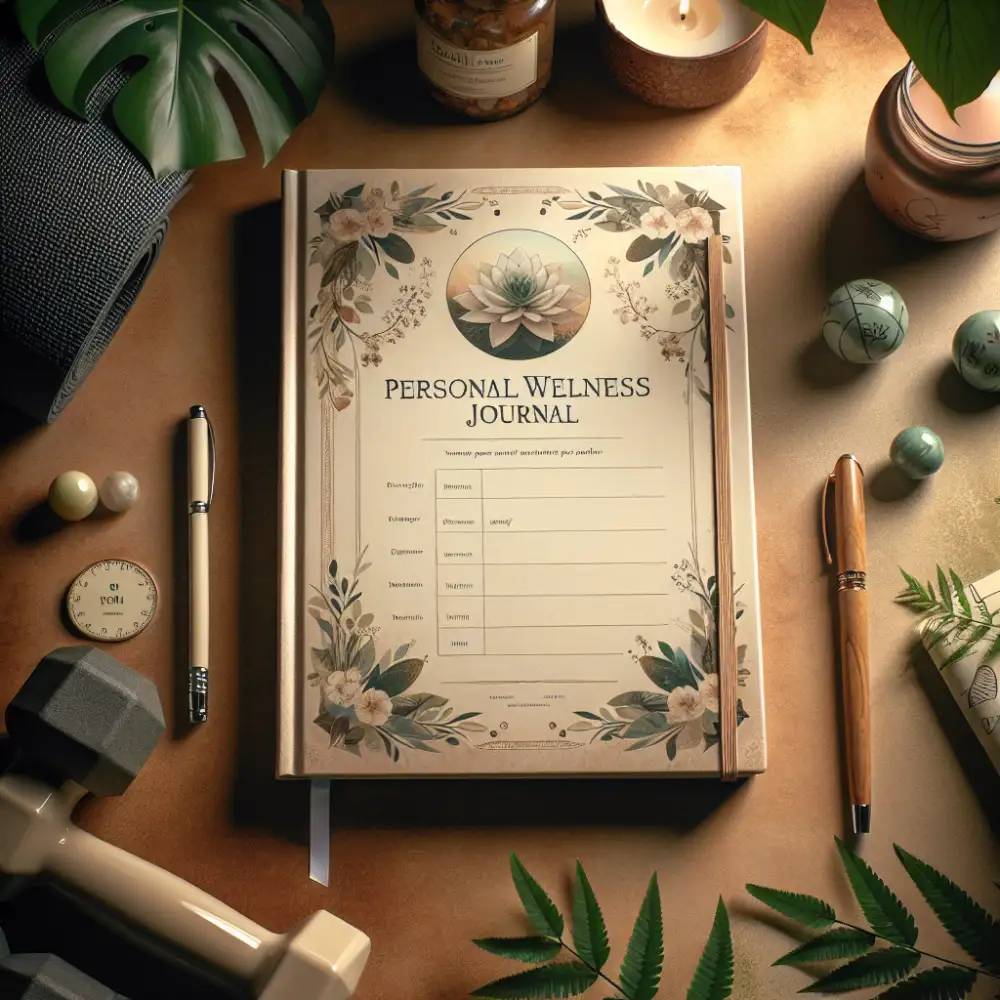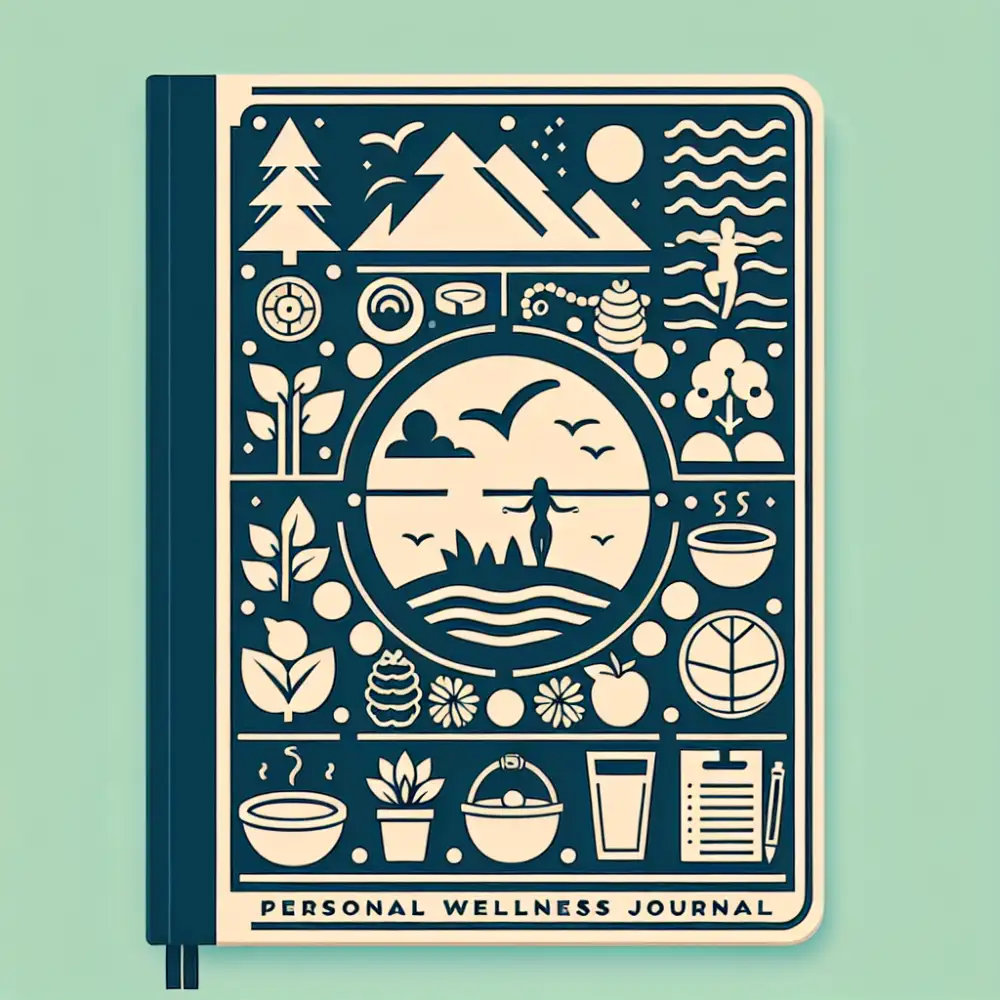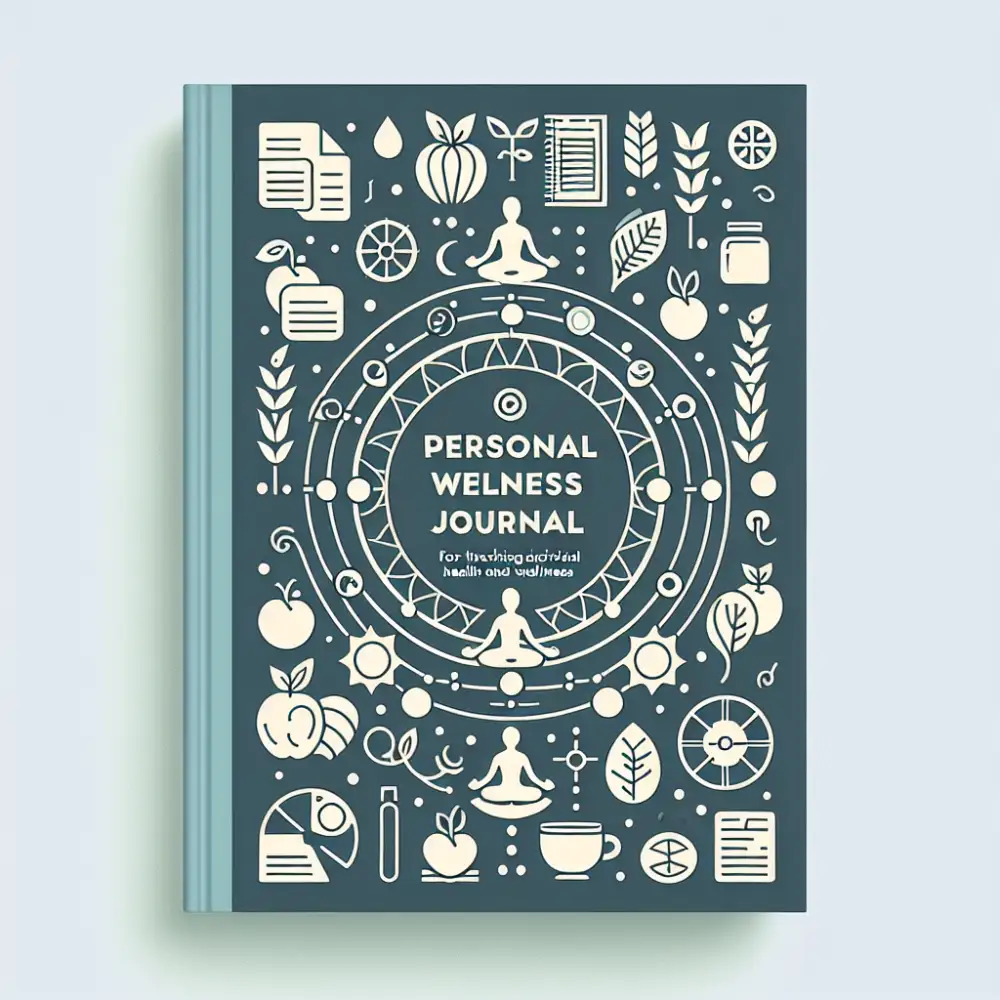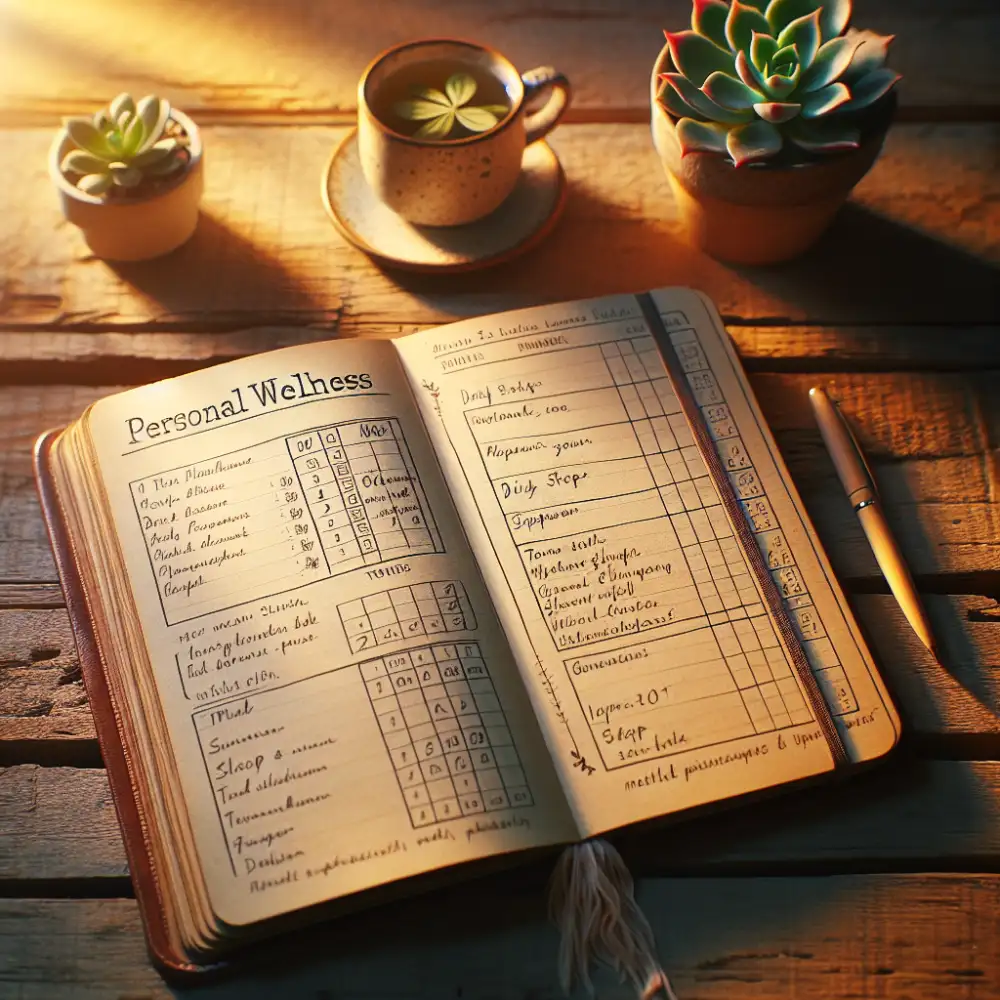Health Minder Personal Wellness Journal: Your Journey to a Healthier You

Track Daily Nutrition
Tracking your daily nutrition is a game-changer for your health journey. It's not about obsessing over every calorie, but about understanding what fuels your body and how it impacts your well-being. Your health minder personal wellness journal is the perfect space for this.
Start by jotting down everything you eat and drink throughout the day. Be honest with yourself! It's not about judgment, but about awareness. As you track, you'll start noticing patterns. Maybe you're a coffee and pastry person in the morning, or perhaps you reach for sugary snacks when stress hits.
Now, let's take it a step further. Consider adding notes about how you feel after certain meals. Did that salad leave you energized, or did that burger and fries make you feel sluggish? This connection between food and mood is key!
Your journal can also become a platform for setting and tracking nutrition goals. Want to drink more water? Aim for eight glasses a day and mark your progress. Trying to eat more fruits and vegetables? Challenge yourself to include them in every meal and track your success.
Remember, this is your personal journey. Your health minder personal wellness journal is a safe space to explore your relationship with food, identify areas for improvement, and celebrate your victories. It's about making mindful choices that nourish your body and empower you on your path to optimal well-being.
Monitor Physical Activity
Regular physical activity is a cornerstone of a healthy lifestyle. It helps you manage weight, strengthens your heart and lungs, improves mood, and boosts energy levels. A health and wellness journal provides a structured way to monitor your physical activity and identify areas for improvement.
Start by setting realistic goals. Instead of aiming for an unrealistic target, begin with small, achievable steps. For instance, if you're not used to regular exercise, start with 15-20 minutes of brisk walking most days of the week and gradually increase the duration and intensity.
Record all your physical activities. Note down the type of activity, duration, intensity level, and any other relevant details. This could include walking, running, cycling, swimming, dancing, gardening, or even taking the stairs instead of the elevator.
Track your progress and celebrate milestones. Regularly review your journal entries to track your progress and identify patterns. Are you consistently meeting your goals? Are there any days when you're more likely to skip exercise? Use this information to adjust your routine and stay motivated.
Identify potential obstacles and find ways to overcome them. Life can get in the way of even the best-laid plans. By identifying potential obstacles in advance, you can develop strategies to overcome them. For example, if bad weather often derails your outdoor workout routine, have a backup plan for indoor activities.

Use your journal to experiment with different activities. Don't be afraid to step outside your comfort zone and try new activities. Your journal can be a great tool for tracking your experiences and discovering new favorites. You might find that you enjoy variety in your routine or that a certain activity is particularly effective in boosting your mood.
Remember, consistency is key when it comes to physical activity. Make it a habit to track your progress in your health and wellness journal, and use the insights you gain to make sustainable changes to your lifestyle.
Record Sleep Patterns
Sleep is essential for overall health and well-being, yet it's often the first thing we sacrifice when life gets busy. Tracking your sleep patterns can be a real eye-opener, revealing just how much (or how little) shut-eye you're actually getting and how it affects your daily life.
Think of the "Record Sleep Patterns" section of your health and wellness journal as your sleep diary. Here's what you'll want to jot down:
- Bedtime and Wake-Up Time: Note the time you hit the pillow and the time you wake up each day. This helps you see the consistency (or inconsistency) of your sleep schedule.
- Sleep Duration: Calculate the total hours you've slept each night. Aim for 7-9 hours of quality sleep for optimal health.
- Sleep Quality: How well did you sleep? Did you wake up feeling refreshed or groggy? Record how restful your sleep was each night.
- Sleep Aids: If you rely on sleep aids like medication, melatonin, or white noise, make a note of it. This helps you identify patterns and potential dependencies.
- Caffeine and Alcohol Intake: Both caffeine and alcohol can disrupt sleep. Note your consumption, especially in the hours before bedtime.
- Exercise: Regular physical activity can promote better sleep. Log your workouts and note the time of day you exercise.
- Daytime Sleepiness: If you experience excessive daytime sleepiness or fatigue, make a note of it. This could be a sign of an underlying sleep disorder.
- Dreams: While not essential, recording vivid or recurring dreams can offer insights into your subconscious mind.
Over time, you'll start to see patterns emerge. Maybe you sleep better on certain days of the week or notice that late-night coffee disrupts your sleep. This valuable information can help you make informed decisions about your sleep hygiene and overall health.
Manage Stress Levels
Stress is a natural part of life, but it can take a toll on your physical and mental health. That’s why it’s so important to find healthy ways to manage stress. A health minder personal wellness journal can be a valuable tool for managing stress levels. By tracking your stress triggers, symptoms, and coping mechanisms, you can start to identify patterns and develop strategies for reducing the impact of stress on your life.

Tips for Using Your Journal to Manage Stress:
- Identify your stress triggers. What are the things that tend to make you feel stressed? It could be anything from work deadlines to traffic jams to family conflicts. Once you know what your triggers are, you can start to avoid them or develop coping mechanisms for dealing with them in a healthy way.
- Track your stress symptoms. How does stress manifest itself in your body? Do you get headaches? Stomach aches? Do you find it difficult to sleep or concentrate? By tracking your symptoms, you can start to see the connection between stress and your physical health.
- Explore different coping mechanisms. There are many different things you can do to manage stress. Some people find that exercise, relaxation techniques, or spending time in nature helps. Others find relief in journaling, talking to a friend, or listening to music. Experiment with different techniques and find what works best for you.
- Practice gratitude. Taking some time each day to focus on the things you’re grateful for can help to shift your focus away from stress and negativity. Write down a few things you’re grateful for in your journal each day.
- Set realistic goals. Don’t try to do too much at once. Break down large tasks into smaller, more manageable ones. And don’t be afraid to say no to requests that you don’t have the time or energy for.
- Make time for yourself. It’s important to schedule some time each day for activities that you enjoy. This could be anything from reading a book to taking a hot bath to spending time with loved ones.
- Don’t be afraid to seek professional help. If you’re struggling to manage your stress on your own, don’t hesitate to reach out to a therapist or counselor. They can provide you with the tools and support you need to develop healthy coping mechanisms.
Remember, managing stress is an ongoing process. There will be times when you feel more stressed than others. But by developing healthy coping mechanisms and using your journal to track your progress, you can learn to manage stress and live a happier, healthier life.
id="note-medications-supplements">Note Medications/SupplementsCelebrate Health Wins
It's easy to get caught up in the whirlwind of daily life and lose sight of our health goals. We might focus on what we haven't achieved instead of celebrating how far we've come. That's where your health minder personal wellness journal comes in. Think of it as your wellness cheerleader, always there to remind you of your strength and progress.


Did you choose a salad over fries? Write it down! Did you resist that sugary drink craving? Document it! Did you finally hit the gym after a long break? You better believe that deserves a special shout-out in your journal.
These seemingly small victories are actually huge. They represent your commitment to a healthier you. Acknowledging these wins, no matter how small, helps you stay motivated and strengthens your dedication to your well-being. It's about recognizing your efforts and giving yourself credit where it's due.
Your health and wellness journey is uniquely yours. It's about progress, not perfection. Your health minder personal wellness journal is a powerful tool for self-encouragement and celebrating your wins, big or small. So grab your favorite pen, open that journal, and start celebrating your journey to a healthier, happier you!
Reflect on Health Goals
Taking some time to reflect on your health goals is a key part of any wellness journey. Your health and wellness journal is the perfect place to do this. It's more than just a place to record your food and exercise. It's a space to engage in honest self-reflection and understand the "why" behind your goals.
Start by asking yourself some key questions:
What are my top three health goals right now?
Why are these goals important to me?
What will achieving these goals look like in my daily life?
What challenges do I anticipate facing?
How will I overcome these challenges?
Who can I turn to for support?
Be specific with your answers. Instead of saying, "I want to eat healthier," try, "I want to incorporate two more servings of vegetables into my diet each day." This specificity makes your goals more tangible and actionable.
As you reflect, consider different aspects of your well-being:
Physical Health: This includes nutrition, exercise, sleep, and managing existing health conditions.
Mental Health: Explore your stress levels, coping mechanisms, and any feelings of anxiety or depression.

Emotional Health: Reflect on your emotional responses, relationships, and self-esteem.
Don't shy away from exploring the challenges you might face. Recognizing potential roadblocks allows you to create strategies for overcoming them. Remember, setbacks are a normal part of the process. It's not about perfection, but about progress.
Regular reflection helps you stay connected to your "why." It allows you to adjust your approach, celebrate victories, and stay motivated on your journey to a healthier, happier you. So, grab your journal, find a quiet space, and start reflecting. Your well-being will thank you for it.
Published: 22. 06. 2024
Category: Food



